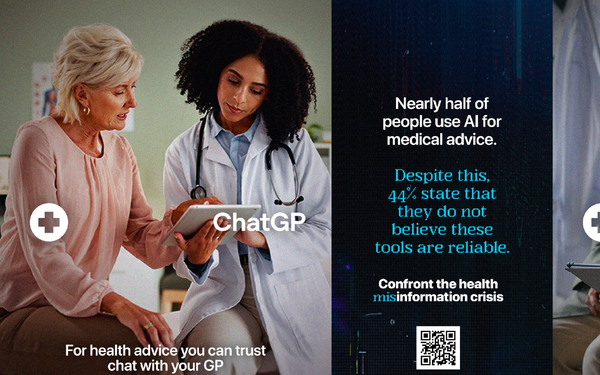
Pharma firms must take the lead in
battling health misinformation, according to “Doctored Truths,” a new 72-page white paper from global healthcare agency Havas Lynx.
The problem is critical, says the report, with
nearly one in three social media posts about health containing misinformation, and a third of patients regretting decisions made based on such distorted info.
"The spread of health
misinformation…is a profound threat to patient well-being and the very foundation of evidence-based medicine,” Havas Lynx CEO Claire Knapp said in a statement. But she added, the pharma
industry “could hold the antidote” due to its “deep clinical expertise and access to credible data.”
Havas Lynx isn't alone in calling for pharma companies to take
action. The report says 71% of healthcare professionals feel the industry has a responsibility to act, but only 41% think pharma is currently doing enough to address the issues.
advertisement
advertisement
The agency
says that pharmas' “antidote” for the problem come in the form of what it calls “the three Cs”:
- “Counsel: coach the general public in critical thinking to
pre-empt disinformation;
- Curb: slow the spread of misinformation;
- Correct: debunk faux facts."
As an example of a brand tackling misinformation successfully, the
report singles out Unilever’s “Vaseline Verified,” a campaign from WPP’s Ogilvy Singapore that recently won nine Cannes Lions awards.
In the campaign, Unilever
responded to a reported 3.5 million-plus online Vaseline hacks by creating #VaselineVerified and tasking its R&D team with testing hundreds of those hacks and identifying those that proved
effective.
To diagnose misinformation, “Doctored Truths” recommends that pharma firms develop an AI-powered tool to “identify and debunk misleading health content, providing
a countermeasure to AI-generated misinformation and helping ensure that accurate information prevails online.” It cites tech vendor Cyabara for its “AI shields that uncover fake profiles,
harmful narratives, Gen-AI content and deepfakes.”
Havas Lynx took up the battle recently its home city of Manchester, England, with a one-day OOH campaign that compared an ad for
ChatGPT with its its own “ChatGP” billboards in three high-visibility locations. (GP stands for general practitioner, the UK’s version of primary care doctors.) In addition,
“We had bikes circulating the city to capture additional content and reactions, which we shared online,” the agency tells Marketing Daily.
“For health advice you can
trust, chat with your GP,” read the ads over photos of patients and their doctors.
Havas Lynx says the activation specifically addressed a critical trend raised in its white paper:
“While almost half of people consult AI for medical advice, a significant 44% doubt its reliability.”